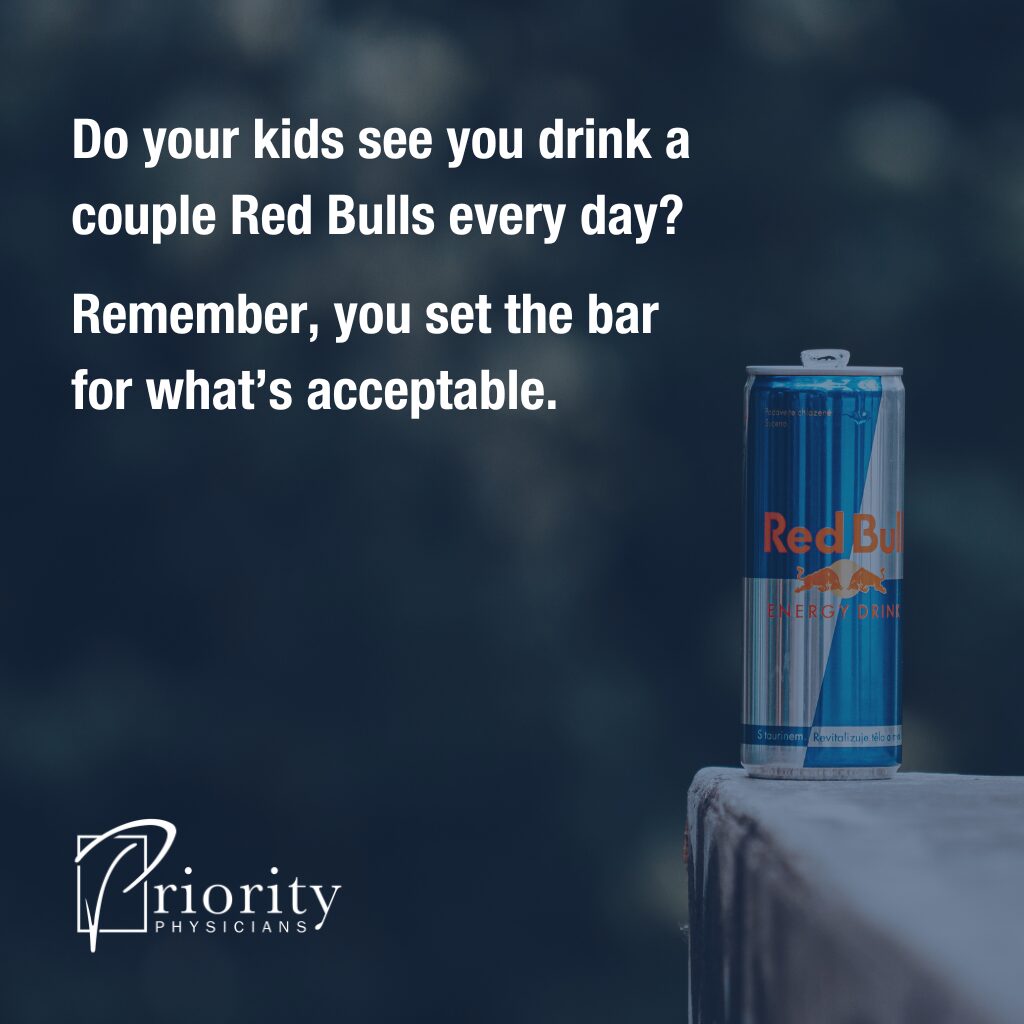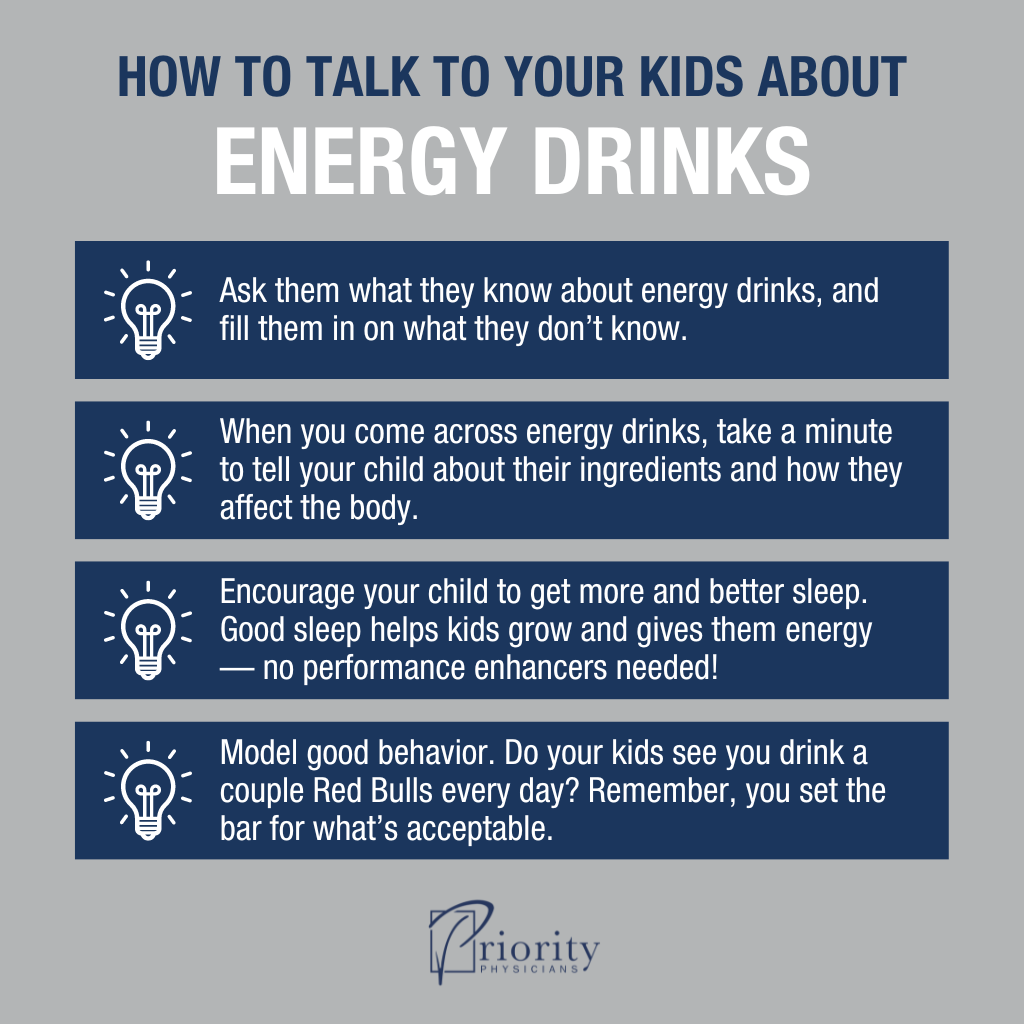Raise your hand if you feel your kid needs more energy.
I didn’t think so.
But YouTube influencer Logan Paul may have felt differently when he promoted his neon-bright PRIME energy drinks. PRIME became wildly popular with kids via social media — and it was certainly eye-opening for me when my 11-year-old recognized the PRIME brand immediately at a gas station.
All this stirs up some important questions for parents: Are energy drinks bad for kids? If so, how bad? And how do you educate your kids about them?
Are Energy Drinks Bad for Kids?
Most kids don’t need an extra shot of energy, and Paul’s controversial marketing campaigns were eventually investigated by Congress and the FDA.
But are energy drinks bad for kids? What’s the harm if your child gulps down an occasional Red Bull?
The American Academy of Child and Adolescent Psychiatry says there’s no proven safe dose of caffeine for kids. They advise children under 12 not to consume any caffeine and children 12–18 to limit caffeine intake to 100 mg. per day.
Energy drinks deliver a boost to an adult, but a child is not a small adult. Kids’ physiology is different. An adult’s system can tolerate certain ingredients and additives that a kid’s cannot.
Take alcoholic beverages, which are prohibited for young people under the age of 21. Why? Because youthful bodies and brains are still developing, and alcohol disrupts that development. So why would we allow kids to consume energy drinks their bodies aren’t ready for?
Energy drinks contain a potent concentration of stimulants, including high levels of caffeine and sugar, taurine, B vitamins, ginseng, and other elements that deliver that “awake and alert” feeling. Combine the effects of energy drinks with the sodas a child may also drink each day, and your child could end up dangerously overstimulated.

The Life of a Busy Kid
Kids today have packed schedules, which many parents encourage. They’re pulled non-stop in many directions — school, dance, sports, band, time with friends, etc. Because energy drinks are everywhere, your child may grab one or more of these products daily without your knowledge to help keep up with their hectic agenda.
For adults, there’s a time and place for stimulants, and in the short term, energy drinks appear fairly benign when used in moderation. But we still don’t know if regular use of energy drinks has lasting consequences for the heart and other parts of the body.
So far, no long-term studies have been published that look at 20 years of energy-drink consumption and tell us what 200 mg. of caffeine each day does to an adult… or, even more troubling, to a child.
We must be concerned about a developing heart that’s forced to beat faster and harder than its normal rate. This could lead to serious issues, potentially even death.

Talk With Your Kids… and Your Doctor
Sadly, many frazzled kids show signs of hypertension, which can harm their mental health, leading to cases of anxiety, depression, and insomnia. Energy drinks may exacerbate these conditions.
It may be time for a talk with your kids about energy-boosting beverages. Here are a few tips:
- Ask them what they know about energy drinks, and fill them in on what they don’t know.
- When you come across 5-hour ENERGY, Monster, and other energy drinks in the checkout line, take a minute to tell your child about their ingredients and how they affect the body.
- Encourage your child to get more and better sleep. Good sleep helps kids grow and gives them energy — no performance enhancers needed!
- Model good behavior. Do your kids see you drink a couple Red Bulls every day? Remember, you set the bar for what’s acceptable.
So, are energy drinks bad for kids? Well, they certainly aren’t good, and there’s evidence they may be harmful. Be the voice of reason. Tell your kids why energy drinks are a bad idea, even if it makes you “uncool.”
Or, let Priority Physicians be “uncool” on your behalf — we love talking to kids! Give us a call to chat.

